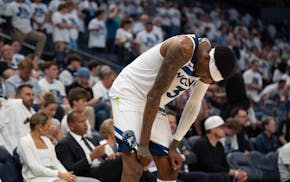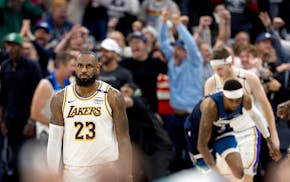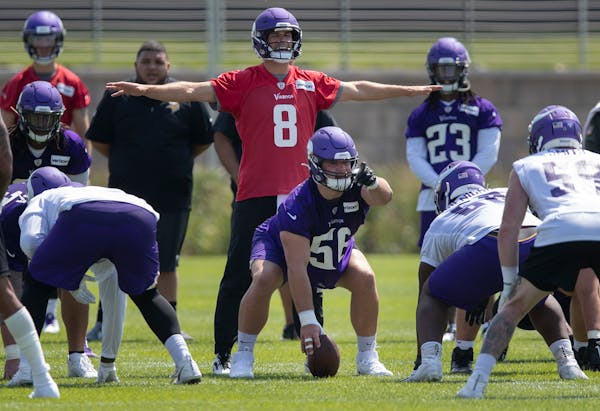Dalvin Cook logged off from virtual workouts this past week, which represents the 2020 version of a "holdout." No more Zoom meetings for him.
Now cast your gaze forward three months to the Vikings' Sept. 13 opener vs. the Packers (assuming the NFL starts on time without any COVID-19 delay). First play of the game: Cook takes a handoff. Bet on it. Maybe not the mortgage, but a decent chunk of change.
The brushfire that popped up regarding Cook's unhappiness with his contract shouldn't obscure the reality that both sides understand that each one holds both leverage and vulnerabilities in negotiations. That leaves one likely outcome: compromise.
The Vikings will compromise. Cook will compromise. A summerlong staredown or threats of a training camp holdout are nothing more than Negotiating 101.
A new deal that pays Cook in the $11 million to $12 million range annually seems fair and reasonable for both sides.
We can label this the "Dalvin Dilemma" or the "Cook Conundrum" because the path to resolution is tricky. It's not as simple as it seems to those who suggest the Vikings should just trade Cook and avoid any temptation to overspend because all running backs are interchangeable. Sorry, the San Francisco 49ers' model isn't guaranteed to work for everyone.
Cook's decision to stop participating in the virtual offseason program did not come as a surprise. Anyone with a morsel of insight into the NFL's business mechanics realizes there was a minuscule likelihood that Cook would play out his rookie contract this season.
The working theory is that the Vikings hold all the leverage, which is not entirely correct. The organization certainly operates from a position of strength in negotiating a contract that won't annihilate the budget, but Cook has reason to dig in his cleats, too.
He is their best and most dynamic offensive player, a top-five running back in the NFL. Alexander Mattison proved to be a nice complement as a backup last season, but he is not in Cook's category. To think the Vikings could just plug-and-play without a drop-off over a long stretch is being overly optimistic.
It's no secret that the value of running backs has plummeted during the NFL's modernization to a passing era, but Cook has the benefit of playing for a throwback coach who refuses to abandon his roots. Mike Zimmer never skips an opportunity to share his affection for a good old-fashioned running game.
John DeFilippo tried to join all the cool kids with his new-age philosophy, and how did that work out for him? He didn't last one season as coordinator here.
Zimmer loves to run the ball. He's effusive in his praise for Cook, and the offensive scheme was constructed with Cook's all-around skills in mind. Therein lies Cook's leverage. You can agree or disagree with the approach, but the boss has made clear what he wants. And what he expects.
Yet Cook plays a position that comes with a particularly high risk of injury and physical wear-and-tear. It just doesn't make sense for a team to commit to a blockbuster contract for a running back, no matter how talented or well-respected that player is in the organization's eyes.
In three seasons, Cook has played in only 29 of 48 games, an undeniable red flag. His camp has to know that his injury ledger affects his leverage, even if Cook believes he is the league's best running back.
If the Vikings were blessed with an abundance of salary cap room — which isn't remotely the case — it still would be unwise to put Cook in the same ballpark as Christian McCaffrey ($16 million average) or Ezekiel Elliott ($15 million).
Even the next tier with Le'Veon Bell and David Johnson at $13 million average salary seems risky, considering Cook's injury history, other position needs and the potential for a lower salary cap in 2021 if games are played without fans this season.
Playing hardball is a lot more difficult these days, especially with a new CBA provision that would affect Cook's service time if he pursued a training camp holdout. A summer stalemate is neither surprising nor alarming at this point. Just sort of inevitable. The prediction here is that the resolution will look fair to both sides.
chip.scoggins@startribune.com

Scoggins: Warriors didn't miss a beat without Stephen Curry

Scoggins: Wild, out of salary cap prison, must sign Kaprizov to long-term deal
Scoggins: Two great players cannot overcome a very good team
Scoggins: Wild are familiar with playoff regret, but Game 5 loss is especially regrettable


